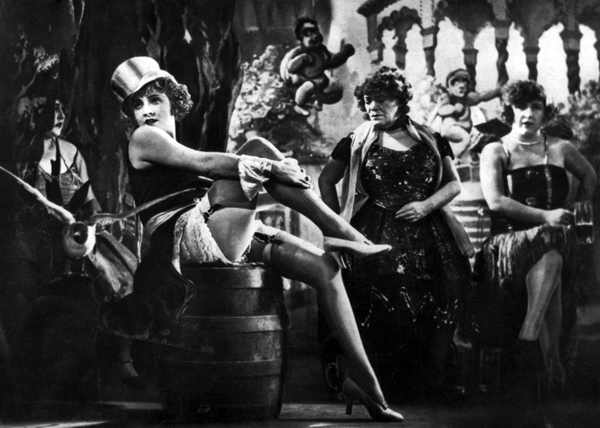
June 27, 2013, by Harry Cocks
Weimar: Beyond Gloom and Glitter
Our view of Germany’s Weimar Republic (1919-1933) has been conditioned by its successor, the Third Reich. Weimar calls to mind images of decadence, the acidic cabarets of Berlin and the discordant songs of Weil and Brecht, not to mention the brutal visions of post-war degeneration and gluttony painted by George Grosz and Otto Dix. This picture was fixed by the 1972 film Cabaret, in which the partying and sexual excess is overshadowed by gangs of sinister blond youths declaiming ‘Tomorrow Belongs to Me.’ Generations of historians have seen the first German republic as an inherently flawed experiment, unloved by its people and doomed almost from the beginning by the circumstances of its birth. But can we get past these images to see Weimar on its own terms?
In a recent book, A Short History of the Weimar Republic, Dr Colin Storer of Nottingham’s History Department seeks to challenge this pessimistic received view. The republic was far from being just a doomed democratic experiment or the hedonistic capital of avant-garde culture. And far from being a failure that left nothing behind it save a few films, songs and paintings, it made very real and lasting achievements, including universal suffrage at state and federal level, advances in women’s rights, equality before the law, co-operation between unions and big business, guaranteed human rights and an extensive welfare state, all of which were rolled back under the Nazis but were fundamental to the post-war Federal Republic. And that is without mentioning Weimar’s influential cultural and intellectual advances, from expressionist cinema and theatre to theoretical physics.
While it is true that Germany experienced revolution, civil war and political violence during the 15 year life-span of the Weimar Republic, these were hardly absent in other European nations between the wars. Weimar also witnessed an upsurge in constructive political participation and achieved a degree of political consensus that has often been overlooked. Long-postponed political reforms such as the recognition of trade unions, an end to the Prussian three-class voting system and the ending of censorship became reality and Weimar Germany led the world in social legislation, cultural experimentation and sexual tolerance, blazing a trail that many societies would later follow.
Considering what came after it the fact that Weimar democracy ultimately failed to survive was a tragedy not just for Germany but also for the whole world. But this should not detract from its numerous achievements. The story of the republic is complex and multi-faceted; one of creation as well as destruction, and it deserves to be remembered as such. It was a remarkable period in German history that demonstrates both the best and worst features of democratic politics and what can happen to modern industrial societies when they face extreme conditions.
Colin Storer, A Short History of the Weimar Republic (Tauris, 2013)
https://short-histories.squarespace.com/a-short-history-of-the-weimar-republic
Previous Post
The Cost of MarriageNext Post
The Cathar Heresy: Fact or Fiction?No comments yet, fill out a comment to be the first

Leave a Reply